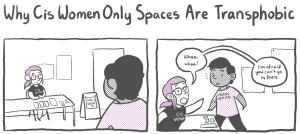[TW: Sexual Abuse]
I grew up in a family without boundaries.
The most prominent display of boundary invasion was the rampant sexual, emotional, and physical abuse running through our family. Little girls and grown women were not allowed to say no to sex. The children were not allowed to say no to anything.
Although I knew that I would never abuse my children – in this way or any other – the boundary issues that I brought from my childhood were sitting in my subconscious, and it was very difficult to see them playing out in my family.
But they were.
I was overcompensating for my own abusive past by being overprotective.
It wasn’t long before I was an official helicopter parent.
I was constantly doing for them what they could do for themselves. I was openly showing discomfort with their expression of feelings. I was controlling their schedule and activity choices without their input. It had never occurred to me to ask what they wanted to do.
And the meals. There were so many issues at meal time. Was a clean plate really necessary?
Over the past few years, I have been increasing my awareness of my hovering habits in the hopes of creating a safer atmosphere for my children to grow up in.
I have started making changes to ensure that my children are comfortable with their own identities. And most importantly at their age, I want them to understand how to respond to and how to use the word no.
There are steps that you can take, of course, to put some healthy space between you and your kids. But if you’re not sure where to start, I’ve got you covered.
1. Take time to notice when you are anxious about your boundaries.
The first step to establishing better boundaries is learning when your boundaries are being invaded.
This requires some intense self-observation.
And if you have become accustomed to moving through life in a dissociated state, this may be the hardest step.
The next time you feel overly stressed in a parenting situation, check in with your body.
Take a deep breath. Actually, take several.
What does it feel like? Do muscles in your body get tense? Do you dissociate and mentally leave the room?
Observe where you are holding your fear or discomfort about their behavior or expression in your body.
Examine it. Journal about it. Where does the discomfort come from? Is there an experience from your own childhood that may be invoking your reaction at the moment?
If you can be honest about where your boundary anxieties originate, you may discover that they do not come from your children’s behavior, but rather from a place inside of you.
If you can become aware of your most intense unconscious reactions, it may be possible to break a cycle of generational boundary issues in your family.
In addition, these self-observation skills can help you reach a better self understanding which can create positive changes in other aspects of your life.
Conscious parenting can lead to conscious living.
2. Use phrases or symbols to remind yourself of potential boundary issues.
As parents, we spend many hours of our day habitually going through the motions, as they say. Children love schedules, and we can get lost in the everyday.
Our dissociated state often causes us to repeat patterns from our family of origin. As parents, phrases and symbols can be great tools to bring us back to Earth.
So choose a couple of phrases that can help you remember what you are trying to change.
The Orange Rhino is a great example of using symbols and colors as a reminder to stop parenting behavior. In this case, she uses a moniker to keep her from yelling at her children.
Sometimes, it just takes a quick question in the moment: Am I comfortable with this situation? Are my needs for physical and emotional space being met?
You can bring the children in to the process also. You can use phrases and symbols that will help them recognize when they may be pushing a boundary or two.
If one of my children asks me to do something that they can do, I try to remember to say, “Mommies are here to do what you can’t do. Can you do that for yourself?”
Now my children will even remind me.
The other day, my son started listing the things that he can and can’t do just to make sure I knew where he still needed help.
This phrase has helped keep the whole family on track.
3. Encourage the open expression of feelings.
Expressing feelings helps your children to understand who they are.
It is critical that they are comfortable with expressing a range of emotions.
Now, the truth is, there is usually one emotion that is more difficult for a parent to accept. And that’s okay. But pay attention to which emotion causes a painful reaction for you using the self-observation skills listed in the first step.
Personally, I have two challenges with emotional acceptance:
In childhood, I had taught myself that crying was too vulnerable and weak. In the early parenting years, I was notorious for saying “You don’t need to cry about that.”
I was also quick to denounce anger as a bad emotion because my parents did not express anger properly in my childhood.
Now I let them cry, and I try to stay conscious of my own discomfort with their expression of pain.
Even if I don’t like them to be in pain, I can’t ask them to hide it.
As parents, we don’t want to stop the emotion, but we can teach them how to express the emotions safely.
They can express anger without hitting their sibling (or us). They can be sad about something without taking the entire Target store down with them. They can be happy about a vacation announcement without the entire neighborhood becoming painfully aware of the impending trip.
Of course, this may not be learned at two years old, but if you keep at it, it can be learned eventually.
4. Don’t buy gifts for your children because you feel guilty.
We live in a society that is fixated on materiality.
But here’s the problem with that: Material things don’t make us happy. They never will.
I know it sounds cliché, but happiness is an inside job. Teaching children early that people don’t define themselves by what they have is critical to their self development.
I am a single mom who does not have extended family because of my abusive childhood. As such, I am always trying to ensure that they have everything their two-parent friends have.
I try to fill the roles of their father, grandmothers, and grandfathers by buying toys for them (which is exactly what they would do).
But this doesn’t work. All it does is teach them to look in the wrong direction. It sends the message that they can find fulfillment through things.
They can lose themselves in their things. In their younger years, it might be a game or a toy. One day, it will be a car or a house.
If you feel guilty about any aspect of your parenting, spend some time examining that feeling.
Do you feel guilty because you know there is a better way to parent? If you can, make some changes.
Do you feel guilty because society tells you something is wrong with your parenting situation (in the case of many single parents)? Drop that guilt as fast as you can.
If you are providing a loving home for your children, your children are much better off than the majority of children in the world today.
5. As you work on saying no, work on saying yes to what really matters to them.
As you start to deny some of the things they don’t need, you will be more capable of saying yes to what they do need.
What they need is attention and love. Of course, it is impossible for one person to give the love and attention of five people. However, there are ways to make a difference.
Set aside a date night with each kid once per month. On that night, focus all of your attention on that child.
Introduce a snuggle-time before bed with just you and your child. If you have more than one child, make sure snuggle-time is separate. This is a great way to end the mayhem of the bedtime routine. In our snuggle-time, we focus on five things they are grateful for instead of praying for something they want.
Take time away from the electronics. There is nothing wrong with a family movie night, but there is little connection happening during the movie. Go for walks or play board games. These activities encourage social interaction from all family members.
Get to know your children – really know them. What do they want to be? This is not the same as what you want them to be.
Is there something they have always wanted to try? Have you laughed it off in the past because it didn’t seem realistic? Maybe it isn’t. Your child may not be able to go skydiving at six years old, but maybe she can go to one of the indoor training facilities and do the next best thing. Maybe –just maybe – you can do it with her.
Most importantly, don’t deny them any experience based on gender – ever.
6. Spend some time on physical boundaries.
Some may think it goes without saying, but it doesn’t.
In most family systems, children’s physical boundaries are very nebulous. Most of the time, as parents, we don’t realize we are potentially impacting a boundary.
When they are young, their bathroom time usually involves an adult. If they are in their bedroom with the door shut, we may or may not knock on the door. We might just walk in to check on them (especially if we suspect they are drawing on the wall). But if we walk in on our kids without knocking, it might explain why they do that to us.
If you use repeated physical punishment, like spanking, please consider how your child is internalizing this experience. Imagine if we went through life with the constant threat of physical assault as adults. It would be like living in a war zone. It would be hard to function in an environment like that.
There are more subtle versions of physical boundary invasion, too.
If you are tickling or wrestling with your child, and they say stop, stop immediately. They need to understand that their request for physical space will always be respected.
In return, they are more likely to respect your boundaries (and the boundaries of others!) when they are older.
However, if we have young children, we are human jungle gyms. There is no way around it.
—
Healthy boundaries will teach our children that they are their own person.
Our children will learn that they are not defined by others’ thoughts or perceptions.
Our children will learn that they are free to think for themselves. They are free to be who they are.
Of all the gifts we can give to our children, this is the perfect one.
[do_widget id=‘text-101′]
Elisabeth Corey is a survivor of family-controlled child sex trafficking and ritual sex abuse. Her education in social work and her personal experiences as a survivor inform her intimate discussion about the biological, psychological, social, and spiritual aspects of trauma recovery, which she discusses on her blog. She writes about breaking the cycle of abuse through conscious parenting, navigating intimate relationships as a survivor, balancing the memory recovery process with daily life, coping with self-doubt, and overcoming the physical symptoms of a traumatic childhood.
Search our 3000+ articles!
Read our articles about:
Our online racial justice training
Used by hundreds of universities, non-profits, and businesses.
Click to learn more





















